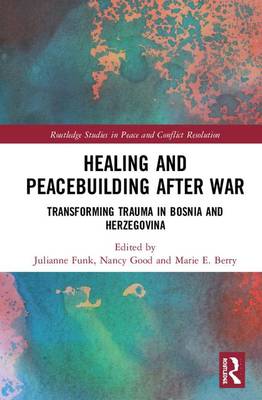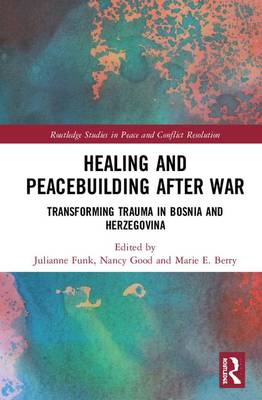
- Retrait gratuit dans votre magasin Club
- 7.000.000 titres dans notre catalogue
- Payer en toute sécurité
- Toujours un magasin près de chez vous
- Retrait gratuit dans votre magasin Club
- 7.000.0000 titres dans notre catalogue
- Payer en toute sécurité
- Toujours un magasin près de chez vous
Healing and Peacebuilding after War
Transforming Trauma in Bosnia and Herzegovina
Description
This book brings together multiple perspectives to examine the strengths and limitations of efforts to promote healing and peacebuilding after war, focusing on the aftermath of the traumatic armed conflict in Bosnia and Herzegovina.
This book begins with a simple premise: trauma that is not transformed is transferred. Drawing on multidisciplinary insights from academics, peace practitioners and trauma experts, this book examines the limitations of our current strategies for promoting healing and peacebuilding after war while offering inroads into best practices to prevent future violence through psychosocial trauma recovery and the healing of memories. The contributions create a conversation that allows readers to critically rethink the deeper roots and mechanisms of trauma created by the war.
Collectively, the authors provide strategic recommendations to policymakers, peace practitioners, donors and international organizations engaged in work in Bosnia and Herzegovina - strategies that can be applied to other countries rebuilding after war.
This volume will be of much interest to students of conflict resolution, peacebuilding, social psychology, Balkan politics and International Relations in general.
Spécifications
Parties prenantes
- Editeur:
Contenu
- Nombre de pages :
- 242
- Langue:
- Anglais
- Collection :
Caractéristiques
- EAN:
- 9780367027988
- Date de parution :
- 23-07-20
- Format:
- Livre relié
- Format numérique:
- Genaaid
- Dimensions :
- 156 mm x 234 mm
- Poids :
- 517 g






